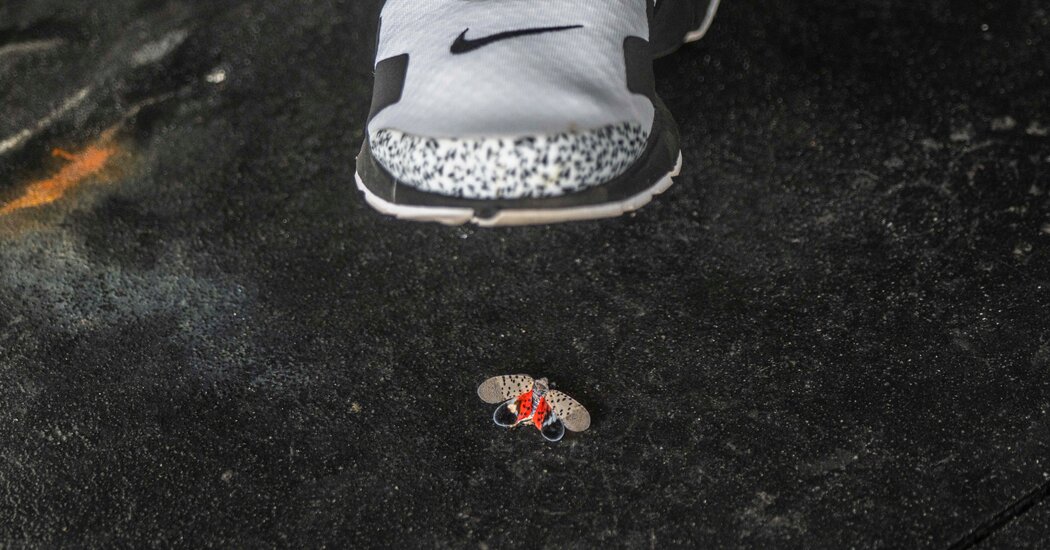Your stomping may have helped trim this invasive insect’s population. But experts say other factors probably explain their reduced numbers around New York City.
The spotted lanternflies seem to have gone AWOL.
Just a year ago, New York City’s flashiest new insects were impossible to miss. At the Brooklyn Botanic Garden, these invasive insects were out in force, their crimson, polka-dot bodies blanketing the maple trees, marching along the grape vines and flitting around the diners at the cafe.
The insects, which were first detected in the city in 2020, accumulated in such numbers that Shauna Moore, the garden’s director of horticulture, found herself fielding regular calls and emails from visitors alarmed by what appeared to be a full-scale invasion of “these crazy new creatures,” she said.
This year, the insects have all but vanished at the garden. “We’re still seeing a few here and there, but oh, my gosh, they are not in the mass abundance as they were last year,” Ms. Moore said. “It’s remarkable how quiet it’s been.”
Ms. Moore is not the only one who has noticed. Although there is no official count of the insects, spotted lanternflies have been more difficult to, well, spot in the city this summer, experts said. If 2020 was the year the invasive insects took New York City, 2024 might be remembered as the year New Yorkers got their city back.
“They’re still out there,” said Brian Eshenaur, an invasive species specialist at Cornell University. “But we’re just not seeing them at the numbers we have in the past couple years.”
Could it be that New Yorkers’ fancy footwork has kept the bugs’ population at bay?
“We like to think that we’re making a difference by stomping on the spotted lanternfly,” Mr. Eshenaur said, noting that a single female can lay more than 100 eggs in a season. “So if we’re doing that, yeah, we might be making somewhat of an impact.”
